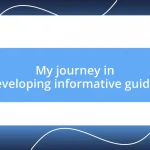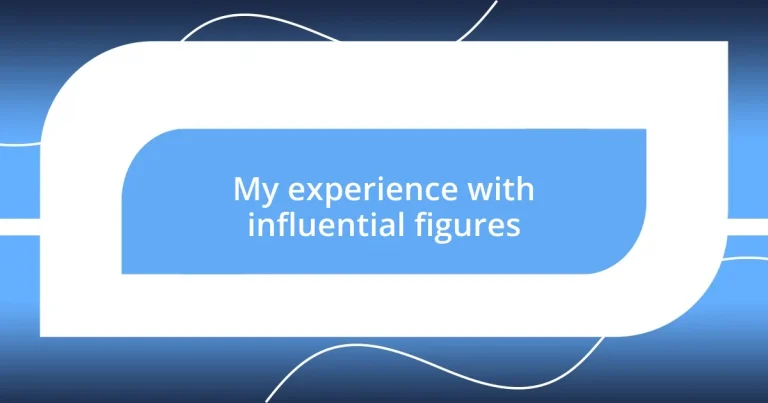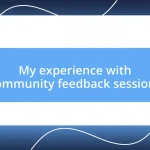Key takeaways:
- Influential figures, such as mentors and authors, provide motivation, guidance, and support, shaping our understanding of ourselves and our paths.
- Building mentor relationships requires trust, openness, and reciprocal appreciation, enhancing personal and professional growth.
- Sharing personal experiences fosters connection and influence, emphasizing that vulnerability and authenticity can inspire and empower others.
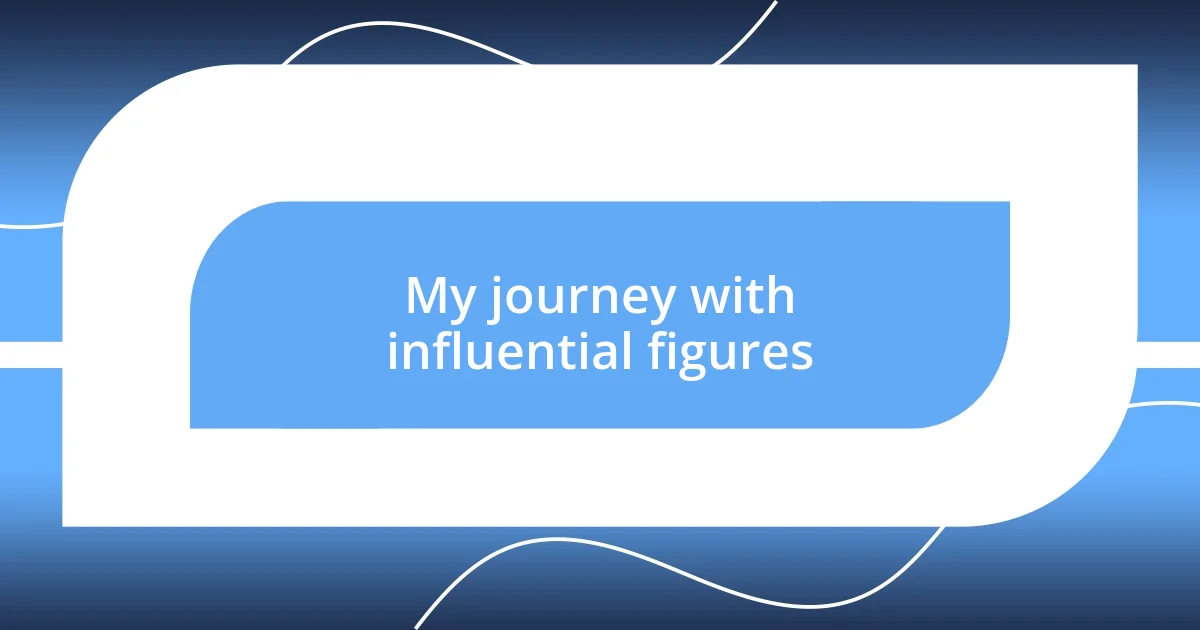
My journey with influential figures
Throughout my journey, I’ve encountered a range of influential figures whose impact on my life has been profound. For instance, I remember meeting a local artist at an exhibit; her passion for creativity inspired me to embrace my own artistic pursuits. Have you ever felt that spark of motivation from someone you barely know?
One of the most notable figures was my mentor in college, who illuminated the path of leadership for me. His unwavering belief in my abilities pushed me to take risks and think beyond my comfort zone. I still recall those late-night discussions where I was encouraged to articulate my dreams—what a transformative experience that was!
Then there was an author whose work resonated deeply with my struggles; reading her books felt like having a supportive friend beside me. It made me wonder—how often do we underestimate the power of words to shape our thoughts and actions? Each influential figure I’ve met has added a unique layer to my understanding of myself and my world, guiding me in unexpected ways.
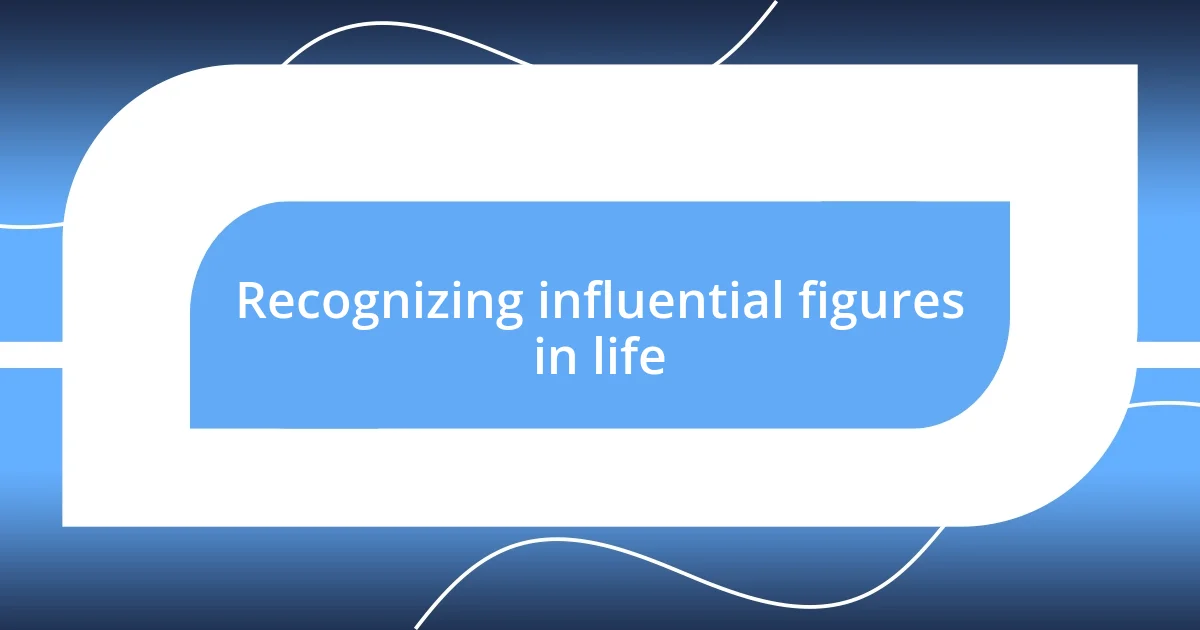
Recognizing influential figures in life
Recognizing influential figures in life can often feel like a serendipitous experience. I remember sitting quietly in a coffee shop when a stranger began sharing her story of overcoming adversity. Her warmth and authenticity struck a chord within me, reigniting my passion for resilience in my own journey. These moments can be incredibly impactful, often nudging us in the direction we didn’t even know we needed to go.
- They may be mentors, teachers, or even friends who challenge our perspectives.
- Often, their influence becomes clear during moments of reflection.
- Whether through a chance encounter or a shared experience, their impact is significant.
- Recognizing their contributions involves being open to learning from every interaction.
- It’s not always about formal relationships; sometimes, a fleeting conversation leaves a lasting impression.
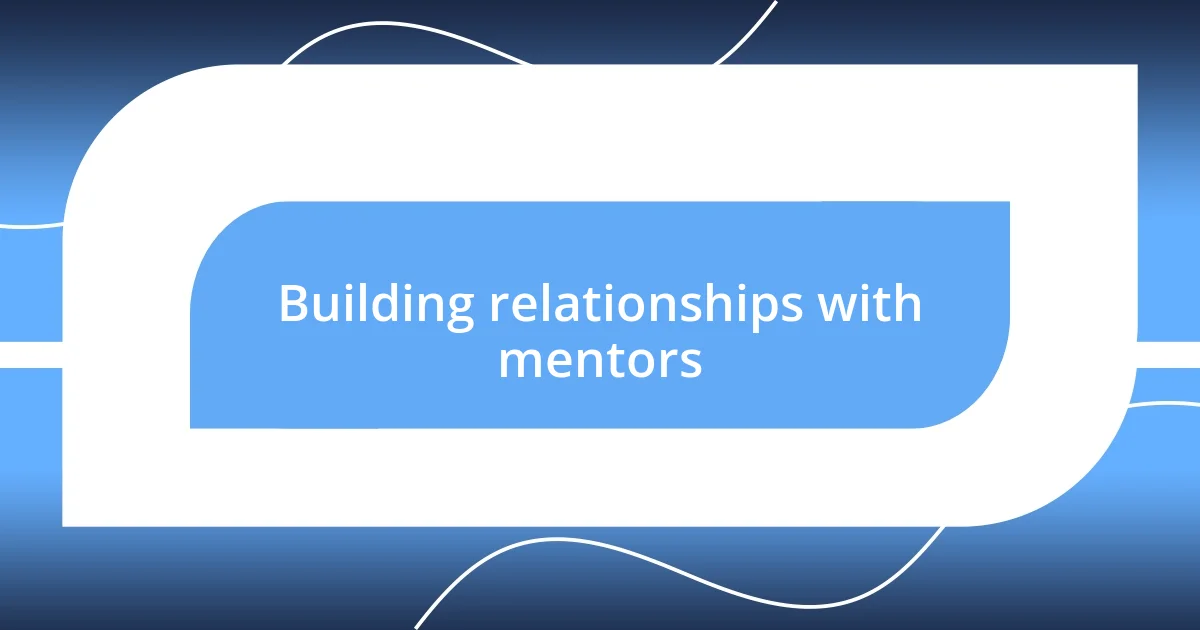
Building relationships with mentors
Building relationships with mentors can be one of the most rewarding aspects of personal and professional growth. I remember the day I reached out to an experienced colleague after a conference. It took a leap of faith, but that simple email led to a coffee chat that transformed my understanding of networking. The connection we forged not only clarified my career path but opened doors to opportunities I never imagined.
The foundation of strong mentor relationships often lies in trust and openness. I’ve found that sharing my challenges candidly has fostered deeper connections. Once, I confided in my mentor about my struggle with imposter syndrome, a feeling many can relate to but seldom discuss. That moment not only strengthened our bond but also allowed my mentor to share her own experiences, creating a safe space for growth and healing.
It’s essential to remember that building these relationships isn’t a one-way street. I’ve learned that demonstrating appreciation for my mentors’ time and insights is crucial. After gaining valuable advice from a mentor, I made it a point to send a handwritten thank-you note. This small gesture deepened our connection and conveyed how much I valued their guidance. It’s these seemingly little acts of acknowledgment that can significantly enhance mentor relationships over time.
| Key Elements | My Experience |
|---|---|
| Trust | Connecting through shared vulnerabilities builds a stronger bond. |
| Reciprocal engagement | Expressing gratitude enhances the mentor-mentee relationship. |
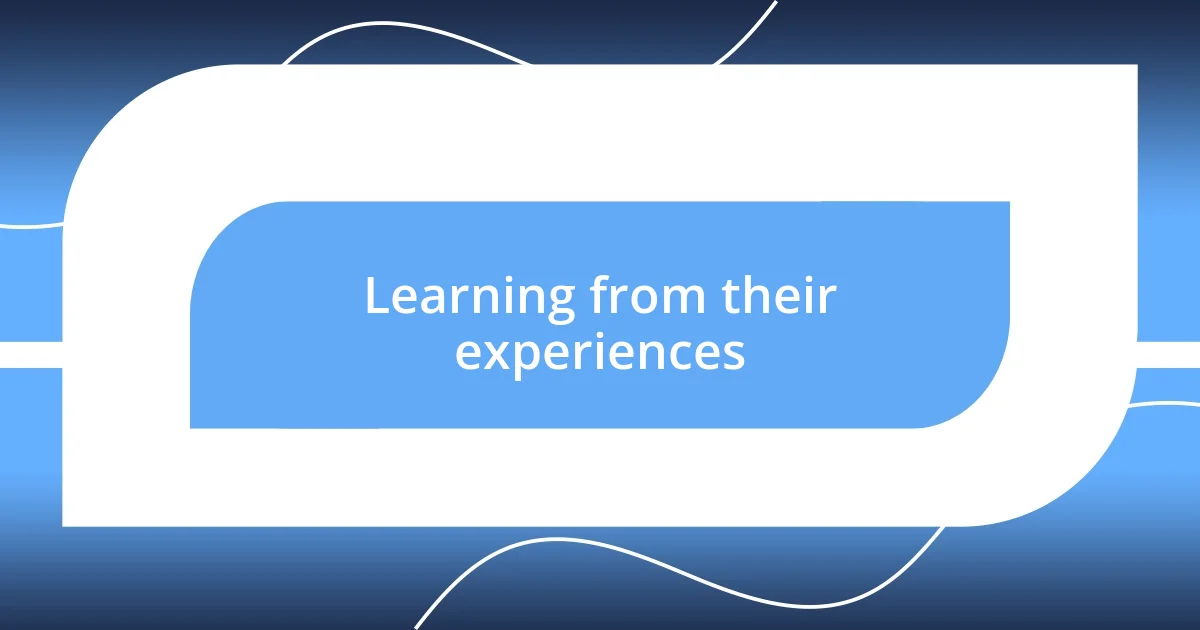
Learning from their experiences
Reflecting on the experiences of influential figures has taught me the power of vulnerability in leadership. One time, during a workshop, a well-respected speaker opened up about her failures. It struck me how her candidness allowed everyone in the room to connect on a deeper level. Have you ever found yourself relating more to someone’s struggles than their successes? I certainly did that day, and it shifted my perspective on what it means to lead and inspire.
Learning from others isn’t merely a passive process; it requires actively engaging with their stories. I recall a time when I listened to a podcast featuring a non-profit leader discussing her journey through countless setbacks. I found myself taking notes, not just on her strategies but also on her mindset. It made me realize that resilience isn’t just about bouncing back; it’s about embracing the journey, flaws and all. In what ways can you apply their lessons to your life? I try to tie their experiences into my own challenges, creating a bridge to personal growth.
Sometimes, the simplest insights can be the most profound. A mentor once told me, “Every setback is a setup for a comeback.” That phrase stuck with me. It’s a reminder that even the most influential figures faced obstacles before achieving their success. I’ve learned to view my hurdles through this lens, transforming them into stepping stones. Have you ever considered how your struggles could be the foundation for your next leap? It’s this shift in thinking that empowers me to keep pushing forward, even when the path gets tough.
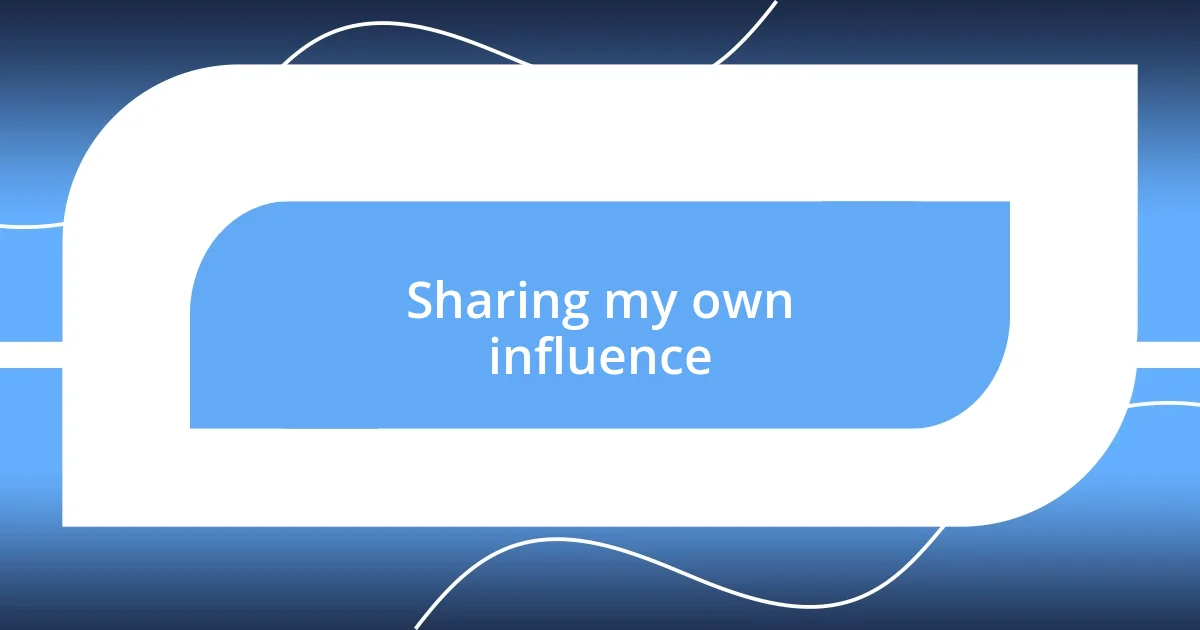
Sharing my own influence
I often find myself reflecting on instances where I’ve had a chance to influence others. A memorable moment for me was when I facilitated a workshop on public speaking. Initially, I felt apprehensive, fearing I wouldn’t connect with my audience. However, as I shared my own fears about speaking in public and how I overcame them, the atmosphere shifted. Suddenly, it became less about perfection and more about authenticity. It was rewarding to see people nodding along, recognizing their own struggles in mine, creating a bond that transcended the typical instructor-student dynamic.
One particular experience stands out to me. I mentored a junior colleague who was navigating the transition from school to the corporate world. I shared my journey, complete with the missteps and lessons learned. During our conversations, I could see her confidence grow, which was incredibly fulfilling. Watching her thrive, armed with insights that I had once sought myself, reinforced the idea that sharing our stories can light a path for others. Have you ever seen someone flourish because of your words? It’s a powerful reminder that influence flows both ways.
I strive to remember that influence isn’t only about my achievements; it’s also about the connections we create. A heartfelt letter I received from a former mentee, thanking me for the impact my guidance had on her career, deeply moved me. It drove home the notion that our actions, no matter how small, can resonate profoundly with others. How often do we realize the weight of our words? I find that embracing this responsibility enhances my commitment to supporting those around me, fostering a cycle of empowerment that radiates beyond just one person.







